Trevor Noah can mimic any accent in the world, even yours! But how many languages does Trevor Noah speak?
He has managed to learn to speak 6 languages – without ever taking a single grammar lesson. So how did he do it?
Turns out the key to learning a language isn’t about grammar at all, but something else entirely!
In this post, I’ll show you how Trevor uses accents, immersion and humour to pick up languages naturally. You’ll learn his exact secrets for breaking through the barriers that hold most people back.
Even if you’ve always felt awkward speaking a new language, you’ll learn how to let loose, have fun and connect with people from day one.
Pro Tip
By the way, if you’re serious about improving your language skills, online language courses for fluency can make a huge difference.
I'm offering top-rated online language courses for beginners to advanced learners, covering Spanish, French, Italian, German, Japanese and more.
If you’ve been looking for a story-based online course to learn languages, this is your chance! Get a free 7-day trial of the course of your choice.
If you prefer watching videos to reading, hit play on the video version of this post at the top of this page. Otherwise, here's what you'll discover in this post:
Table of Contents
Born Multilingual
What do you do when your mum speaks one language, your dad speaks another and your neighbours speak at least three more?
But your mum insists you speak English – so much so, she names you after John Travolta.
Get it? Travolta – Trevor – close enough.
The funny part? They didn’t even live in an English-speaking town! Many people could understand it, but it wasn’t the street language.
Trevor Noah’s life came with a plot twist that shaped his incredible language skills.
You see, it wasn’t just about being mixed race; in South Africa, where he grew up, there are 11 official languages – not to mention wildly different accents for each one.
So I got very curious about how it all works and how Trevor learned so many of them.
In fact, a simple phrase in the right accent quite literally saved him!
Survival And Sounds
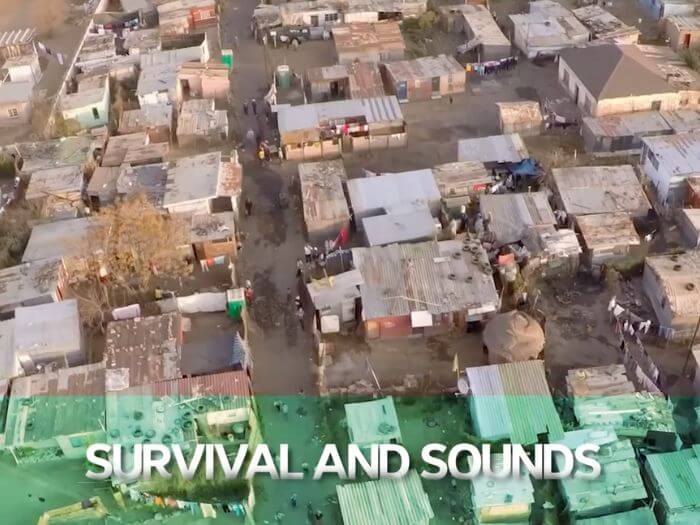
In a place like Soweto, where Trevor grew up, language wasn’t just a way to communicate – it was survival.
One day when he was a teenager, he overheard some Zulu guys planning to rob him.
They thought he was from another tribe. But Trevor quickly switched to Zulu and greeted them. He said, “Who’re we gonna rob?” and just like that, their attitude changed.
Now this wasn’t about being fluent. It was about knowing how to sound like them. Language has power!
Now imagine trying to keep track of all this as a kid: Soweto was a community full of different ethnic groups, each with its own language like Zulu, Xhosa, Sotho and more.
Historically, they would have lived separately, so this was interesting – there were lots of rivalries! The quickest way to bridge the trust gap? Through language.
And there was one special lady who he very quickly learned the tricks from.
Trevor's Mum
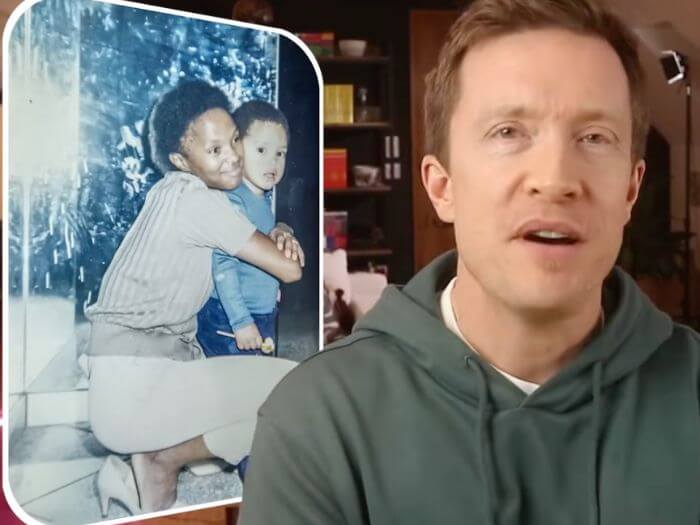
Trevor's mum didn’t just teach him words, she taught him context.
You see, she was Xhosa, but she insisted on speaking to him in English because she believed it would help him succeed in life.
Yet when she was angry, she always fell back on Xhosa!
Trevor jokes: “As a naughty child, I was well versed in Xhosa threats – for my own safety!”
And I have to say, when you can really feel the weight of a language – like with strong emotion aimed at you – that's one way to never forget it!
But his mum was so cool. She would actually pick up other languages from her surroundings – useful ones, like Zulu and Afrikaans.
She was a smart lady. She used language to handle problems and so Trevor learned to do the same. He calls it “simulcasting” – giving people conversation in their own language.
But in case you’re curious, this isn’t unique to Trevor Noah.
South African Language Culture
In Soweto, Trevor learned by socialising with friends who spoke different languages, but in South Africa it’s common for people to pick up multiple languages just through socialising.
I might as well point out that a lot of these languages are very similar, so if you know one, it’s easy to pick up others. You can see what I mean in the chart below:
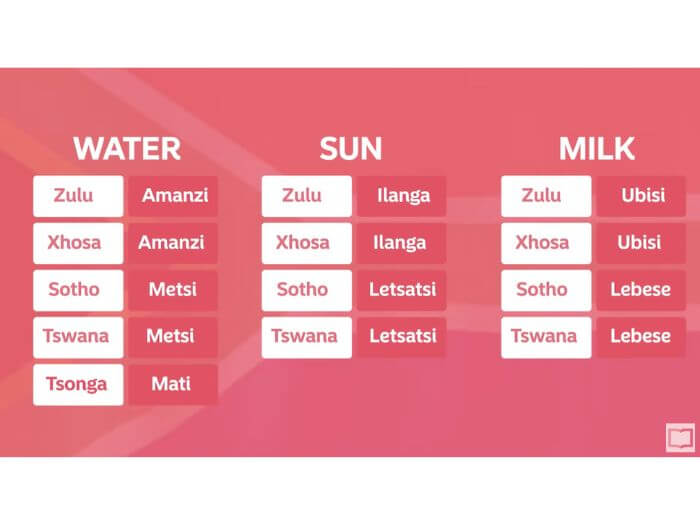
It’s not that you get fluent, necessarily, but you learn to communicate well and pick your language weapon!
Meanwhile, in another neck of the woods there was Trevor’s dad. His dad is Swiss German, but he never grew up with him and never learned the language, but he’s trying to learn it now.
We're almost at a really big secret shortcut. But first, there’s one question only Trevor can answer: how many languages does Trevor Noah speak?
According to some sources, he speaks as many as 7 languages!
(But there’s a surprise twist coming – be warned!)
So what’s his secret?
How does he manage without taking any lessons? I’ll tell you – he starts with the one thing that stands out most.
Trevor's Accent Secret
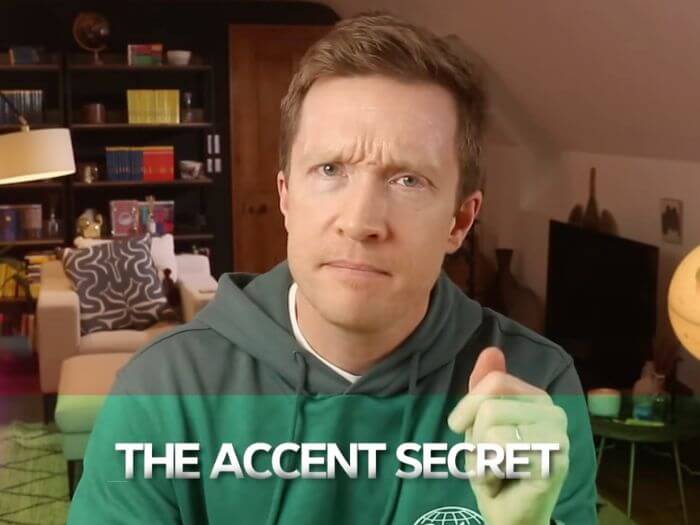
So he doesn’t start with words or grammar – he starts with the accent!
That’s right. He starts with the basic sounds people make when they speak a language. Why?
Because the way you sound is what people notice first. It's the same with other expert language learners I've covered in my case studies. People thought YouTuber Lucy Bella Simkins from English With Lucy was a native Spanish speaker thanks to her accent!
I've been mistaken for a native Brazilian Portuguese speaker before thanks to my Brazilian Portuguese accent.
It’s like the music of the language – the rhythm, the tone, the flow. That's what hits your ear first. And the cool part is, accents aren’t just sounds – they carry the culture, too.
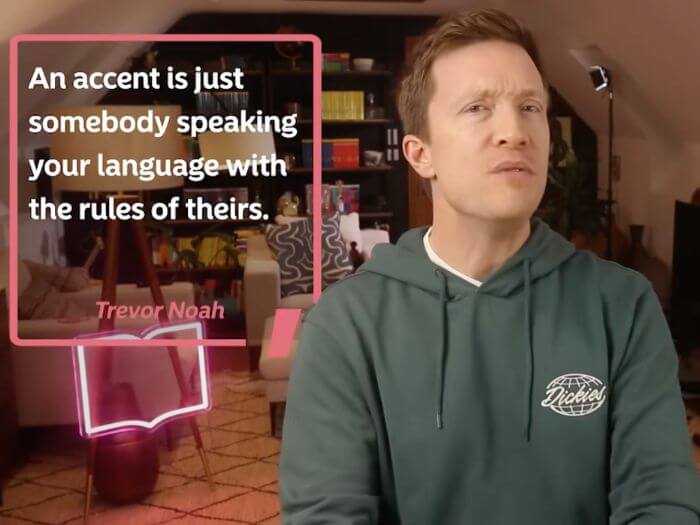
Trevor once said when you mimic someone’s accent, it makes them feel seen. And honestly, it’s no surprise. It’s like saying, “I get you, I respect where you’re coming from.”
It’s a way to break the ice.
Well I have to say, this seems like a really unique approach – learning the culture and the accent first.
Know who else does this? Babies.
Babies don’t start with flashcards (that would be weird), they copy you constantly, and eventually figure out what it all means.
Trevor uses the exact same process.
I bet you’re wondering if you could try this, too? Here’s how to learn an accent, Trevor style.
How You Can Practise An Accent
Be like a kid – listen to how native speakers pronounce words and just copy them. You just need to trust that your brain is designed to pick up language.
Plus, they don’t have to hear you!
I mean, you can even copy someone’s accent from a TV show. It's how millions of people managed to learn English with “Friends” after all!
Pick a character you like, and focus on sounding like them – listen, imitate and don’t worry about words just yet.
It’s going to help you feel comfortable speaking with all these new sounds your voice isn’t used to.
What’s that thing they say? Do it like nobody’s watching!
Listen, the ones who are willing to look stupid are usually the ones who end up learning the most!
But what if you’re still too nervous to even start trying?
Don’t worry, Trevor has a way to overcome that too and it’s something anyone can do.
Immersion, Trevor-Style
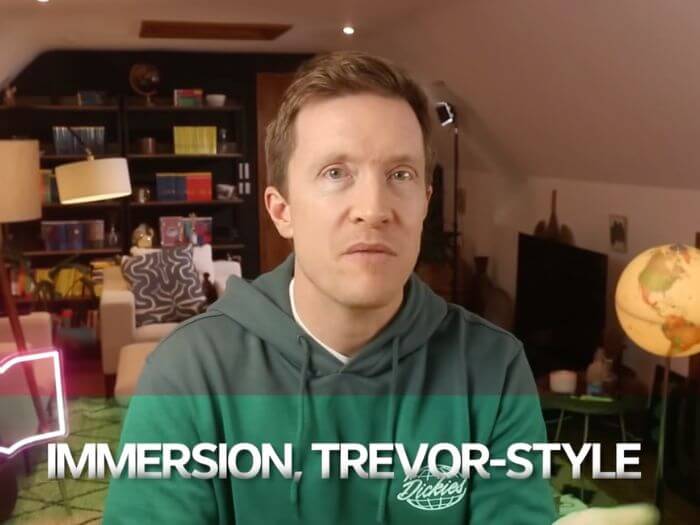
Trevor’s next shortcut is: immersion.
Only this time, it isn’t the kind where you need a plane ticket!
Wait – what does “immersion’” even mean? Immersion is all about surrounding yourself with a language in your everyday life.
For Trevor, it started in Soweto at parties, when people were switching between 3 or 4 languages – Zulu, Xhosa, English, you name it. That was immersion.
No one translated anything. They just figured it out as they went along.
So in this case, Trevor and his mates learned by observing people – you listen, you piece things together from context.
It was going to lead to an awesome language hack – just wait and see! But you’ve got to hear this crazy story first.
Trevor Noah's Awkward Prom Date
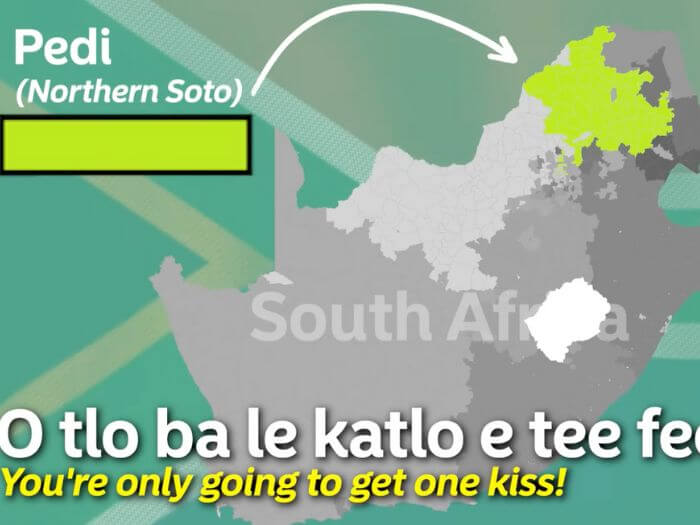
Trevor’s prom was, let’s say, unique. He didn’t have a date, so his friend set him up with a stunner called Babiki.
And she was perfect, except for one tiny problem: she only spoke a language Trevor didn’t understand!
So Trevor tried every language he knew – Zulu, Xhosa, English – nothing worked.
The night turned into a masterclass in awkward. Turns out even Trevor Noah’s language skills have their limits!
Did he still get the girl? Oh yeah. But I bet he knows a bit of Pedi now.
And here’s the beauty of immersion: it forces you to connect words with real situations.
You see, hear, and experience the language all at once and in that perfect storm, you don’t forget them. Like all the babies in the world, ever? Exactly like that.
How You Can Immerse At Home
So, okay, you’re probably not trying to learn Zulu, maybe not even Spanish, but what if you want to learn a language from another country, like French. Does this trick actually work if you’re not living in France?
I think you’ll like my answer: You don’t need to move abroad!
French immersion at home is possible. And there’s lots you can do:
- For example, change all your media to French – your TV shows, your music, your podcasts
- You can sign up to an AI language tool like Langua, to access these same podcasts and YouTube videos and study them, line by line, and even practise speaking with the AI
Just start small and easy with some daily habits, get yourself going and build from there.
When you’re having your morning tea or coffee, that's a great time to listen to a podcast. You can also tune into podcasts while you’re doing chores, driving or going to the gym.
Basically, kick off your day with whatever you normally do, but do it in your target language.
It will be awesome to find a native speaker to chat with sometimes, even if you only know a few words.
But you can also talk to yourself – you can narrate your day out loud. And the coolest part is, you know that lovely face in the mirror is not judging you!
Listen, languages are hard – I know it, I feel you. But the trick isn’t to understand everything, it’s to stick with it and not be an inconsistency villain.
When you hear a language every single day, you start to notice patterns, and you’ll find yourself thinking, “Okay, that works. That’s how you say it.”
Code-Switching
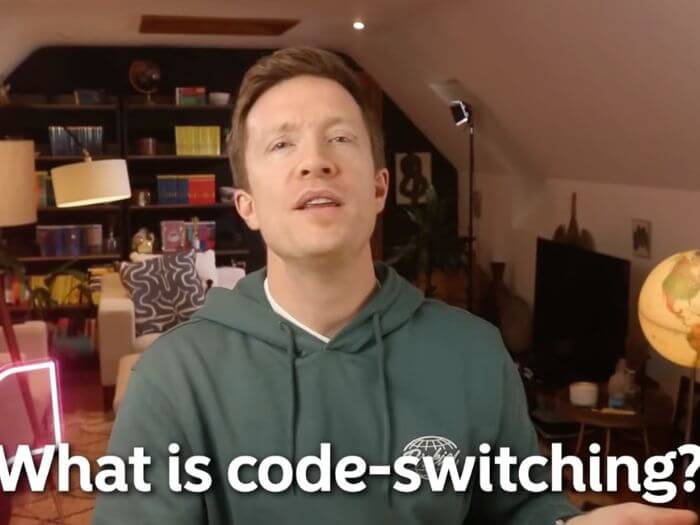
I’ll be honest – I’m good at languages, but never ask me to do accents – you will regret it! But I can switch languages easily, so I know there’s big truth in this: Trevor’s ability to code-switch so smoothly is a huge key to his success.
So what is code-switching, then?
It’s when you adapt the way you speak for the other guy’s sake so they’ll understand you. And often what happens is that your brain flips between languages automatically.
So for example, if you’re from the States, you’ve probably heard of Spanglish – when people mix English with Spanish – know it?
That’s code-switching. In South Africa, code-switching is second nature.
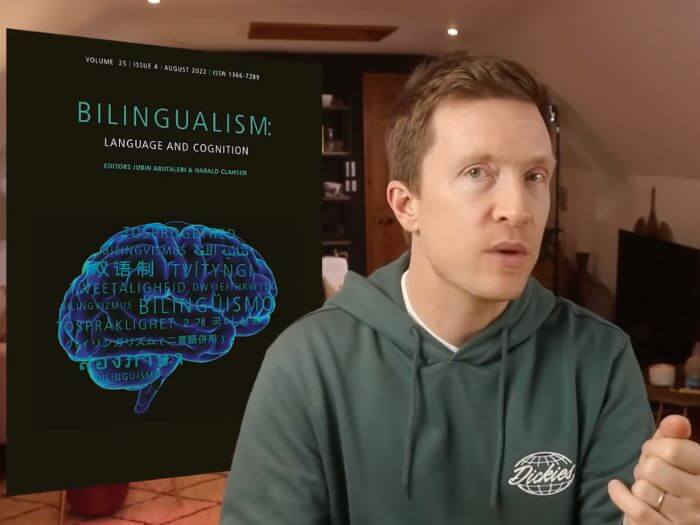
There’s a study about this in a journal called ‘Bilingualism: Language and Cognition‘; They found that the more you practise flipping languages in real-time, the less you'll pause to find the right words.
That's because it strengthens your brain's ability to think quickly and adapt. Isn’t that great?
But code-switching isn’t just about languages – it can be accents too.
Trevor explained it like this: “I change a few words, I change my tone, I change my accent slightly.”
No wonder he connects with so many people!
And here’s the best part: you can do this too – you don’t need to be fluent.

How You Can Start Code-Switching
If you fancy having a go at this hot, hot trick of Trevor’s, you could start real simple.
Let’s say you want to learn French.
- First practise the accent. You speak your own language, but with a French accent and be free with the body language!
- Next, choose some words or phrases you like and swap out a few sentences with English, or whatever you speak.
- And then next week, make it a bit harder, until half the things you say every day are in French.
Remember, this is just for practice – you aren’t inventing a hybrid language!
It’s just a fun way to ease into things.
And once you’re good enough to have basic conversations, practise switching between languages with real people, like Trevor does.
I have a trick of my own to share:
Got a journal or a work diary? Great! Start writing part of your day in the new language. You could write the date in French and maybe just one thing you plan to do that day.
Now you’re code-switching!
Next step? Watch out world, here comes a bilingual!
Laughter Is The Best Teacher
Trevor has one rule when it comes to learning languages: It’s got to be fun.
If it’s fun, you remember. And since we’re stealing his methods, don’t be afraid to laugh at yourself – humour is a key part of language learning Trevor-style.
This comes right back to learning the culture first, not the perfect words.
And if you think about how much easier it is to remember a joke than to remember something hard, like a French spelling lesson.
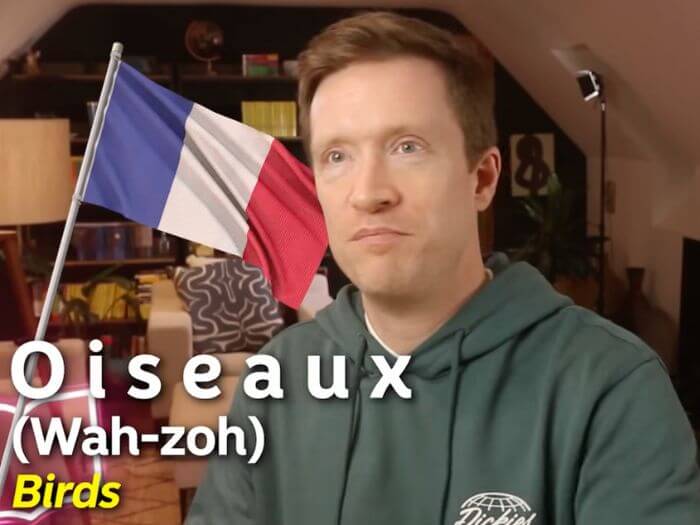
Yeah – it makes perfect sense!
OK. Here comes the moment of truth!
Remember I warned you about a surprise twist?
Well, what happens when you say you can speak 7 languages, and next thing, Duolingo rings you up and invites you to teach two of them on their app?
In 2022 Duolingo asked Trevor Noah to bring Zulu and Xhosa to the app and he clarified the answer to the question: how many languages does Trevor Noah speak?
Here are the 5 languages Trevor Noah really speaks: English, Afrikaans, Zulu, Tswana and Tsonga.
That’s right – even with his amazing ability to communicate in so many languages, Trevor admits he’s still learning. And he’s not even fluent in Xhosa, let alone German!
And you know what? That’s okay, in fact, it’s amazing.
Because whatever level he’s at in all those extra languages, he’s learned a life-changing truth: the point isn’t perfection – it’s connection!
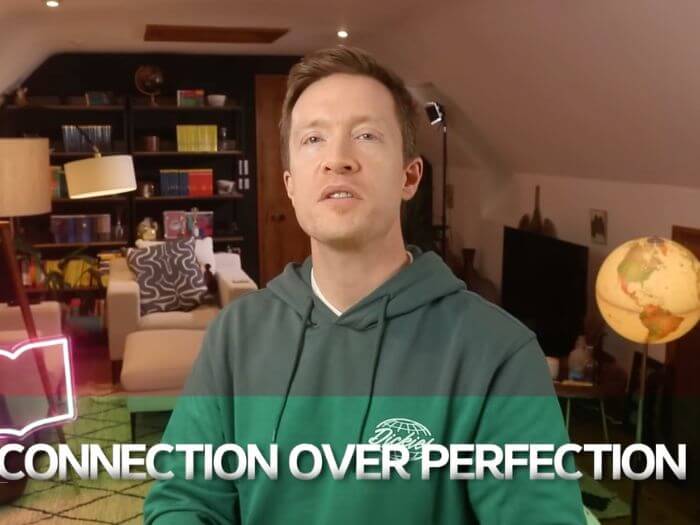
How Many Languages Does Trevor Noah Speak? FAQ
Does Trevor Noah speak other languages?
Yes, Trevor Noah is multilingual. He speaks English, Xhosa, Zulu, Tswana, Tsonga, Southern Sotho, Afrikaans and German.
What was Trevor's first language?
Trevor Noah’s first language is English. His mother chose English so he could have better opportunities during apartheid in South Africa.
Which different languages did Trevor's mother know?
Trevor’s mother, Patricia Nombuyiselo Noah, is a native Xhosa speaker. She also speaks several other South African languages fluently.

Olly Richards
Creator of the StoryLearning® Method
Olly Richards is a renowned polyglot and language learning expert with over 15 years of experience teaching millions through his innovative StoryLearning® method. He is the creator of StoryLearning, one of the world's largest language learning blogs with 500,000+ monthly readers.
Olly has authored 30+ language learning books and courses, including the bestselling "Short Stories" series published by Teach Yourself.
When not developing new teaching methods, Richards practices what he preaches—he speaks 8 languages fluently and continues learning new ones through his own methodology.









































